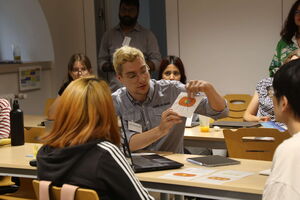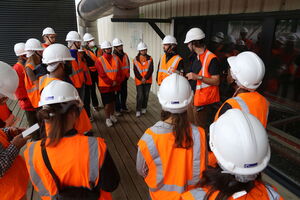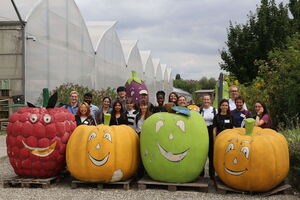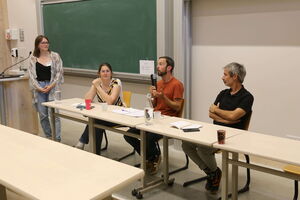Looking back on the Eucor Summer School on urban micropollutants
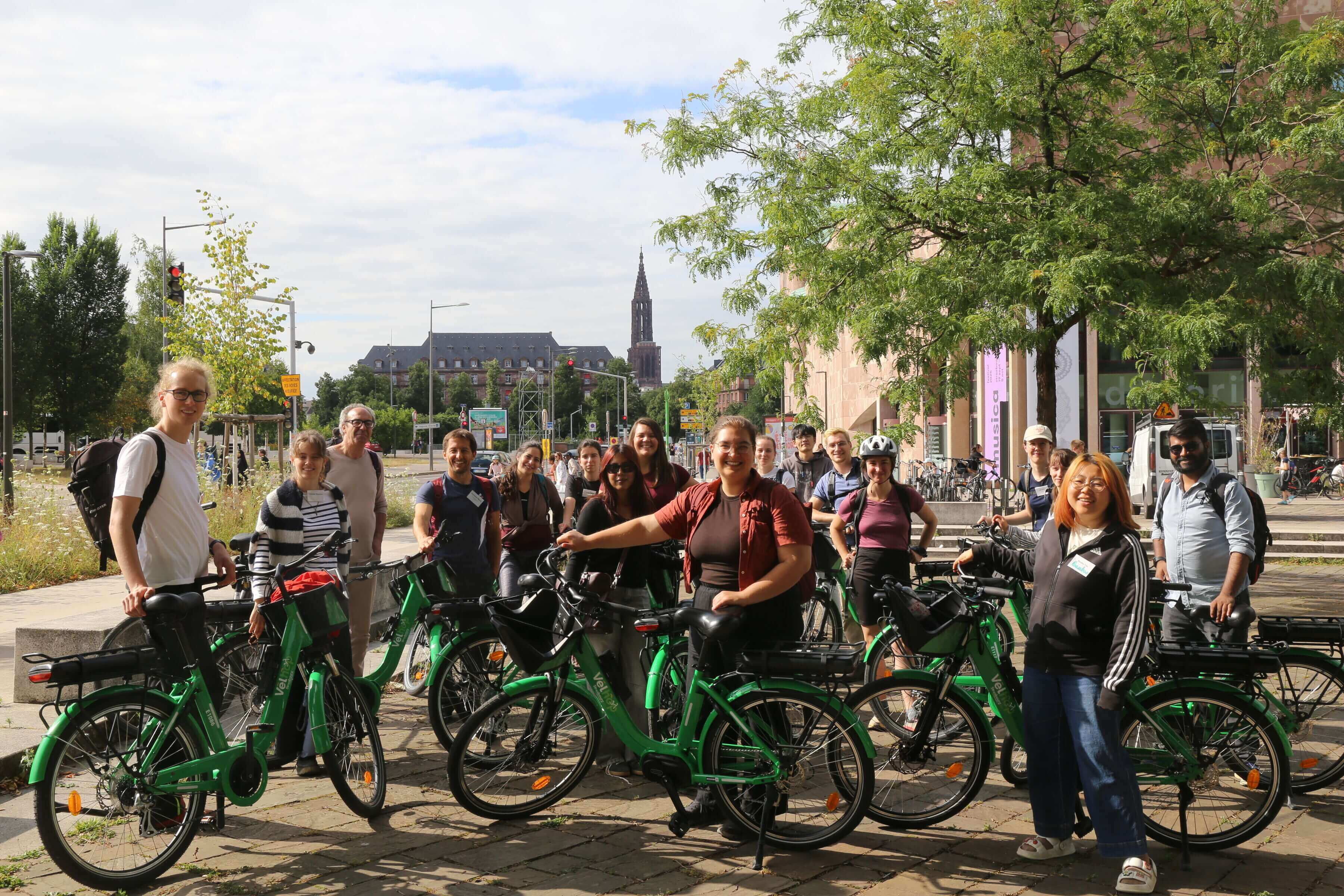
From 7 July to 10 July 2025, doctoral candidates explored the topic “Urban Micropollutants - diagnoses, challenges and solutions for the city of the 21st century” in the Rhine region as part of the Eucor Summer School. In groups, they intensively worked on diagnosis, trajectories, governance and tools and presented their results to the representatives of the City of Strasbourg.
Micropollutants, which result from human activities such as transport, construction, agriculture, industry and the daily use of various products, represent a major environmental challenge for urban centers. The Summer School proposed an inter- and transdisciplinary approach to better understand the sources and impacts of these micropollutants, as well as the socio-environmental strategies for limiting their use, presence and dispersion in the various environmental matrices in urban context. The international group of advanced Master students, doctoral candidates and PostDocs took a transdisciplinary approach to this topic at the Eucor Summer School from 7 to 10 July in Strasbourg. At the end of the event, they presented their proposals on the topic to representatives of the City of Strasbourg. The Summer School thus provided a unique opportunity to interact with specialists and make a concrete contribution to current urban challenges.
Theory meets practice
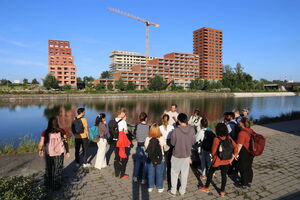
The program alternated between lectures by experts, field visits led by researchers, and group work, encouraging collective intelligence and interdisciplinary exchanges.
For four days, the 17 participants from a range of nationalities and disciplines explored specific topics related to urban micropollutants. “Theory and practice should be interlinked” says Christophe Marcic, an associate professor from UniStra who developed the concept for the Summer School and led it. So, excursions by bike alternated with lectures and group work. The bike tours led to a Waste Water Treatment Plant and to a urban farm. Moreover, the particpants also enjoyed a biodiversity tour as well as an architectural tour in Strasbourg in order to learn about the use of micropollutants and their fate in the environment and their impacts on the ecosystems.
Recommendations for dealing with micropollutants
Over the course of the week, the participants developed their presentations around four thematics:
- DIAGNOSIS: where they explored methods for diagnosing micropollutants, addressing both historical pollutants and emerging contaminants present in various environmental compartments.
- TRAJECTORIES: searched for socio-ecological trajectories towards a cleaner, more sustainable city, identifying challenges and alternatives to the use of these substances.
- GOVERNANCE: was devoted to a better understanding of the policies for managing and reducing discharges in urban environments.
- TOOLS: to assess contamination modelling and forecasting solutions and to reach sustainable urban transformations.
As a result of their work, they recommended a publicity campaign to make the public aware of the dangers of micropollutants. Concerning trajectories, they proposed alternative urban planning strategies. Tools to limit the presence of micropollutants might be on the one hand technical like innovation in wastewater treatment. On the other hand, all group stated the importance of public awareness. A social media campaign was proposed as well as new scores that show the pollution grade.
New perspectives
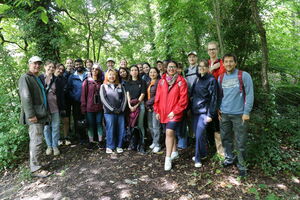
“The human experience was very rewarding as people came from different background and countries. I keep in mind this summer school as a breath of fresh air in my PhD journey,” said Lina SAOUDI, who is a doctoral candidate in Water sciences at the University of Strasbourg. And Jule STERN, a doctoral candidate in environmental ecotoxicology at the University of Kaiserslautern-Landau added: “It was really interesting to work on urban micropollutants from different perspectives”.
“The participants were very involved in meaningful interactions and enthusiastic in all the summer school activities. They proposed interesting ideas to the Eurometropolis of Strasbourg on the various topics studied, which was greatly appreciated by the city representatives who attended the presentations and contributed in making this summer school a success.”, concludes Christophe Marcic.
The Eucor Summer School “Urban Micropollutants” was organised within the framework of Eucor in cooperation with the Universities of Strasbourg (lead: Christophe Marcic), Freiburg (coordination), ENGEES, CNRS, University of Landau (RPTU), INTERREG project “Reactive City”, ITI SWITCH and the Ökoinstitut Freiburg. It was funded by ITI SWITCH, “Reactive City” Project and the Ministry of Science, Research and Arts of Baden-Württemberg.
